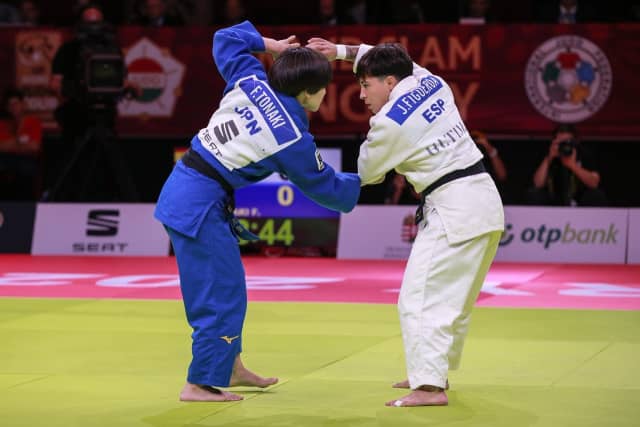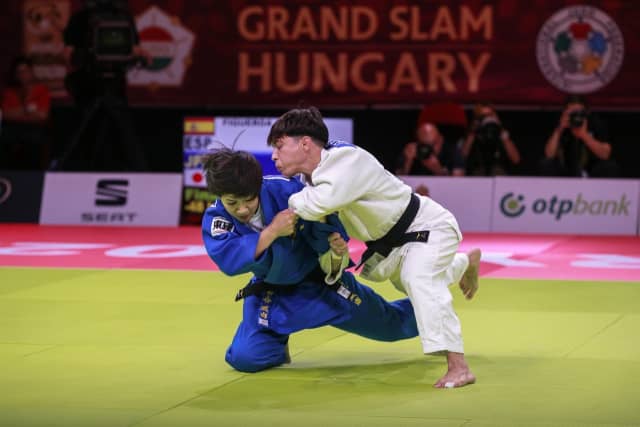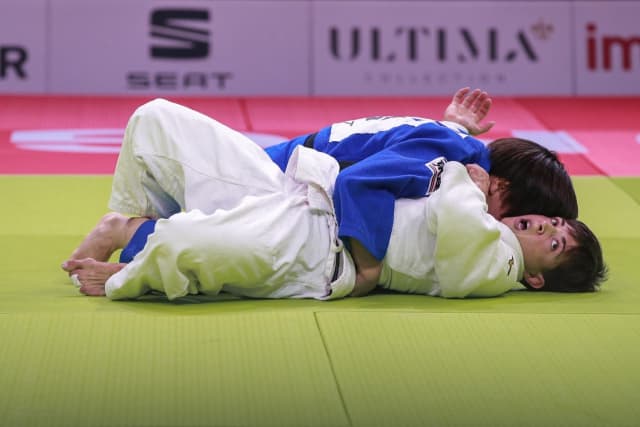In Hungary it was Rishony's turn to stumble. Her executioner was the Chinese Zongying Guo, author of a sensational waza-ari that cleared the way to the gold medal for the other candidates. One of them was Julia Figueroa. The Spaniard is a veteran of the circuit, multi-medallist, patient and an expert in ne-waza. Without making a sound, Figueroa got rid of Priscilla Morand of Mauritius and the Mongolian Narantsetseg Ganbaatar. She was already in the semi-finals with Rishony out cold. The Spaniard did not miss the opportunity to go for the Olympic points and eliminated Guo with a sensational ippon. The other clear candidate, the most dangerous, was the Japanese Funa Tonaki. Two-time world champion and Olympic runner-up, of all the women at -48kg, the Japanese was the clear favourite. Her day was a triumphant ride to the semi-finals, where the surprising Mireia Lapuerta Comas was waiting. The Spanish judoka, 37th in the world, twenty-three years old and a resumé where the highlight is a bronze in Antalya. In Hungary, she won on her own merits, a place in the semi-finals and the honour of being measured against the best in the category. The honour lasted one minute and two seconds, the time it took Funaki to knock Lapuerta down for the first time, before finishing her work with a second waza-ari. So, Figueroa against Funaki, it was time to talk to Sugoi Uriarte, the Spanish coach and to Figueroa herself. Let's see, how are you going to prepare the final? “Easy,” says Figueroa, “this combat is more than prepared; be careful with the sleeves and even more careful with the ne-waza of the Japanese.” Oh yeah? “Of course,” answers Uriarte, “she is the best in the world on the ground. We're going to have lunch now." Bon appetit and let it be something light because Funaki is not one of those whom offers good digestion.
Figueroa was trying to lower Tonaki's left hand. They are two lefties and the Japanese did not like what the Spanish was doing. But, as Uriarte warned, in ne-waza, Tonaki is the best; she had her chance and she didn't waste it. It was a first gold for Japan.
Ganbaatar and Lapuerta fought for the first bronze. The Spaniard scored waza-ari with a counterattack. From then until the end, she was dedicated to losing time, conceding two penalties and held on until the bell. Spain thus premiered its presence on the medal table in Budapest.
Another Mongolian, Baasankhuu Bavuudorj, tried to add first metal for her country. She had to get rid of Guo. It was a frankly boring fight, which also had its golden score portion of more than eight minutes, the outcome of which was a third shido against the Chinese that did not make anyone happy except her rival. Luckily, the public kept their good humour and the desire to see judo. Much remained to be seen.






